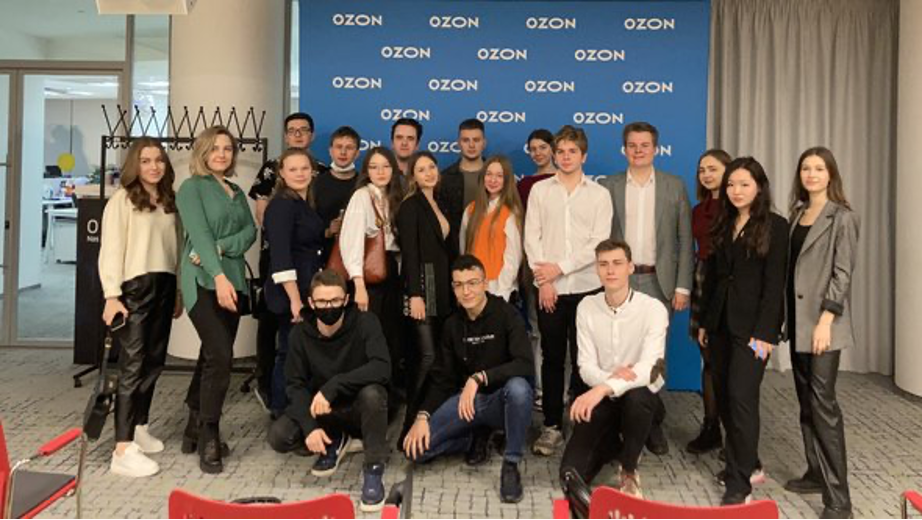How to Get a Job with No Experience: A Student’s Step-by-Step Guide

“At least 1 year of experience” is a requirement to be encountered in many job postings. But how can students and graduates start jobs in their degree field when they have no experience? We asked this question to the head of ICEF Career Services Victoria Pralich and the students of HSE International College of Economics and Finance.
Where to look for internships
Students in search of a job should use different channels to find job openings. The first source to turn to are job aggregators like HH.ru – storehouses of information on who offers what and where. Imperfect as they are, job aggregators are useful in that they give a general picture of the flows of vacancies and internships available.
Your second source is your university’s Career Services. These are available at many faculties, including HSE’s. In the recent HH.ru rating of Moscow-based universities, HSE ICEF ranks first in terms of graduate employability in the sectors of economics and finance, a result facilitated by its Career Services team and the assistance they provide as career navigators.
Alternative sources include specialized Telegram channels, related social networks, and job/internship postings on company websites. If you use the latter, respond to vacancy by filling out the form provided or by messaging to the e-mail address specified. It doesn’t make much sense to reach out to your target company via social networks, for your message will most likely not be forwarded to its hiring manager, but it certainly won’t hurt if you do.
What makes ICEF Career Services a useful job search tool? The direct and immediate contact with recruiters and hiring managers. Every posting from the labour market is carefully screened by our team based on the needs of our students.
How networking works (and what it actually is)
You should make it a habit to network (i.e. build contacts by connecting with people in your chosen industry) as early as possible, literally from your first year. This is one of the things that can help secure both internship and further employment. Some common ways to connect with people include career events, employer-hosted workshops, alumni sessions, direct contact via job postings, and student clubs.
Where to look for Employer Hosted Events? Check out companies’ pages in the social networks and visit websites like Future Today or Changellenge. These two are used by larger companies to announce forums, conferences and case championships.
Effective job search strategies and ways to build and nurture the relationships and contacts are the topic of the First Step, a course that teaches oral and written self-presentation skills, networking techniques and face-to-face interactions involving asking questions, approaching career event speakers, thanking, and communicating via social networks.
What makes a good resume
Find a well-organized template for your resume. Original design does not matter as much as the concise layout that highlights everything the hiring manager wants to see. It’s essential that your resume clearly outlines your level of education, academic performance, extracurricular and work-related experience.
Put in your resume your
- GPA
- academic achievements, awards, certificates of merit
- extracurricular activities, civil society movements and contests you participated in.
It goes without saying that your work experience, if you already have it, should be included too. Emphasize your qualities and skills, describe your contribution to the common cause and your role in it, state if you are experienced with software or technologies.
What to put in Work Experience if you have none
Extracurricular activities are work experience too. It is how you emphasize your role in life on campus, not the essence of activities you were a part of. Describe your contribution and how it helped the team to achieve its goal, state where your input proved productive.
Universities usually offer many different types of on-campus events of social, educational and even commercial nature. Do not fail to include them in your resume. If properly described, your involvement on campus can make up for your lack of work-related experience.

How to prepare for an interview
First things first:
- Learn about your target company and its product.
- Analyze the skills the company requires for the job you are applying for. Ask yourself, “What exactly will it take to do this kind of work?”
Besides, give careful consideration to the things employers have a high regard for:
- motivation (a must-have for us all);
- strong self-introduction. (It’s not how engaging you sound that matters. Your coming across as a memorable candidate is the product of concise self-introduction by strong motivation);
- awareness of (basic) essence of the job;
- qualities required for the job. Employers have different needs and will highlight different aspects of a position, so don’t neglect Item 1.
Preparing for interview tests constitutes an issue of its own. The advice here remains unchanged: practice numerous times. To successfully pass you interview test, you may need to do as many as 10 to 20 tests before the interview. Sample tests are usually available on company websites.
If they aren’t, go to thematic chats, public pages or forums. One vibrant community to help you is Career chat — Costa Case Club, or, if you’re preparing for the career in consulting, use telegram channel Fless.
How to get your dream internship: a step-by-step plan
Identify the industries you are most interested in. Find their market leaders in Russia and abroad. Analyze their core products.
Ask yourself why you might be interested in working with their products. Your answers will give you some clues about the questions to expect from interviewers.
Identify key sources of recruitment and, using Excel spreadsheets or a special software, create a calendar schedule to support your job search. While some vacancies will reach you automatically through mailing lists, others will have to be checked regularly on websites.
A small life hack: if the vacancy is posted on Headhunter, try to find its source. At HH, you can’t write directly to employers. You’ll need to source the contact of a manager or HR specialist yourself.
Once you have it, tailor your resume to the vacancy requirements. In the absence of direct contact, respond to vacancies through the locations of their posting.
What follows next is the interview itself. See our tips above.
Whether you are an A student or an underachiever, stick with this approach and scheduling and you are sure to get a job in four to six weeks. If you still haven’t got a single invitation from you target companies, it means you have to go about the job search more strategically. And, of course, it’s also a matter of staying motivated and self-organized.
Some final tips from our students
Veronika Kasianova, HSE ICEF, 3-year undergraduate, banking analyst trainee:
I got a job in banking and I got into it via the ICEF career group. As someone who had successfully passed all stages of selection and received the offer, I can give some tips to those at the start of their career:
- Accept all interview invitations you can get, even from small or no-name companies. Even if none of them prove successful, they are a good way for you to become experienced.
- Be prepared for the hard skills test. It might be wise to ask your HR specialist about the questions to expect from interviewers. Study up on the line of work your target company is involved in.
- If feedback from HR is long overdue, show concern and ask about your status by emailing them. By doing so, you increase your chances of receiving feedback.
- If you made it to the final stage and are about to be interviewed by a senior officer, focus on the things you think can add to their good impression of you. What did I do? I compiled a portfolio of projects and presentations pertinent to the position advertised so as to give my interviewers a glimpse into my basic skills and whether I’d prove a diligent worker.
- Most importantly, be optimistic. Things will work out well for you!

Ivan Grunenko, HSE ICEF, 4-year undergraduate, customer service trainee:
I got into the banking sector after my second year of study. First, I dealt mostly with bond placements. My current role is in investment product sales and involves direct communication with the clients.
My advice to students is figure out what you want to do professionally as early as possible. When you’re not doing work that makes you excited to get up and go in the morning, it takes a toll on you emotionally. Once you are confident about your choice, the job search will be easy for you. And once you know for sure why you want to be in your chosen industry, it will be easier for you to meet with your potential employers.
In no case should you get upset if you’re turned down. You will come out stronger. You may be turned down twenty times, but be sure you’ll get the job on your twenty-first. By then, your experience will have turned you into an expert on how to act in interviews to avoid mistakes.
The International College of Economics and Finance and the HSE School Students Academy project are pleased to invite everyone to the Career Meet Up “Finance and Economics Degree Graduates: Where do they work?” scheduled for February 16. Find out more by visiting this page. On 3rd March, prospective students are welcome to join the online session “TIELESS WITH ICEF” to learn more about ICEF and its International Bachelor’s Programme in Economics and Finance. Prior registration is required.